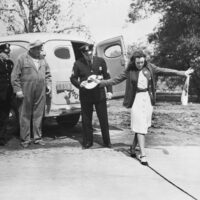What Happens If You Refuse To Take A Field Sobriety Test In Florida?

Being pulled over on the suspicion of intoxicated driving is stressful and intimidating. It is normal to be extremely nervous. Those nerves could actually make you perform more poorly on a field sobriety test. This raises an important question: What happens if you refuse a field sobriety test? In Florida, you are within your rights to decline to take a field sobriety test without penalty. On the other hand, the state has an implied consent law for breath tests/blood tests. Within this article, our Orlando DUI defense lawyer provides a comprehensive guide to the most important things that you need to know about field sobriety testing in Florida.
What is a Field Sobriety Test (FSTs)?
A field sobriety test (FST) is a set of physical and mental exercises that police officers use to determine whether a driver is impaired by alcohol or drugs. Non-chemical FSTs are tests that do not involve the use of breathalyzers or blood tests, and instead rely on the officer’s observations and the driver’s performance on a series of tasks. Some examples of non-chemical FSTs include:
- The one-leg stand;
- The walk-and-turn; and
- The horizontal gaze nystagmus test.
There are Serious Questions About the Validity of FSTs (Inaccurate)
Field Sobriety Tests (FSTs) are widely used by law enforcement to determine whether a driver is impaired by alcohol or drugs, but there are serious questions about their validity. Studies have shown that these tests can be inaccurate, leading to false arrests and convictions. For example, a study from the United States Department of Transportation (DOT) found that FSTs are unreliable and produce false positives in a significant number of cases.
You are Not Required to Take a Non-Chemical Field Sobriety Test in Florida
In the state of Florida, you are not legally required to take a non-chemical field sobriety test (FST) if an officer suspects you of driving under the influence. These tests are voluntary, and you have the right to decline to take them. However, it’s important to note that if you refuse to take an FST, the officer may still arrest you based on other evidence of impairment, such as the smell of alcohol on your breath or slurred speech.
Chemical DUI Tests are Different: Understanding Florida’s Implied Consent Law
It is important to distinguish between non-chemical FSTs and chemical breath tests and blood tests. Florida has an “implied consent” law for chemical tests, such as breath and blood tests. In cases of driving under the influence (DUI), you are deemed to have given your consent to take a chemical test if an officer has probable cause to believe you are driving under the influence. If an officer has probable cause, and if you are arrested for DUI, the officer may require you to take a chemical test to assess your blood alcohol content (BAC). If you refuse to take the test, your driver’s license will be suspended. This is known as a DUI refusal. You may still face DUI charges based on other evidence.
Contact Our Orlando DUI Defense Attorney for Immediate Help
At The Baez Law Firm, our Orlando criminal defense lawyer has extensive experience defending DUI charges. If you or your loved one was arrested for a DUI and has any questions about field sobriety testing, we can help. Contact us now for a completely confidential initial evaluation of your case. With an office in the heart of Orlando, we provide DUI defense representation throughout Central Florida, including in Apopka, Kissimmee, Winter Garden, St. Cloud, and Hunters Creek.
Source:
ojp.gov/pdffiles1/Photocopy/197439NCJRS.pdf
